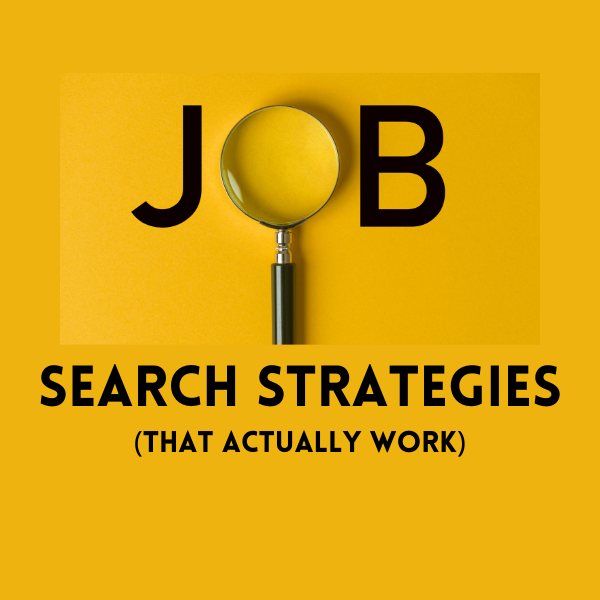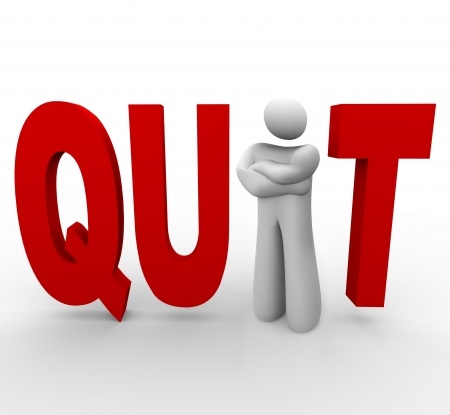Resume Not Getting Results? Time To Turn Your Boring Employment History Into A Marketing Tool
Do you send your resume out just hoping for the best?
Do you share it with friends with the caveat that you just threw it together?
I’ve looked at thousands of resumes. Many potential clients I talk to today think their resume is “not too bad, probably needs a little tweaking.”
When I look at their resume from the perspective of a personal brand strategist and former recruiter, I see a resume that’s rubbish.
Long boring lists of duties and responsibilities, highlighted as achievements.
✔️ Developed and managed marketing campaigns for key clients . . .
✔️ Managed organizational functions for the largest global . . .
✔️ Worked closely with leadership on corporate communications . . .
Time to change that.
How To Create A Resume For An Internal Promotion
The only time most people think about their resume is when they’re looking for a new opportunity with a different employer. But, that’s not the case. A winning resume can increase your odds of success when applying for an internal promotion.
If you’re competing with outside candidates, you already have one thing going for you. You’re already there. When you have a history with the employer, they don’t have to worry whether or not you’re a culture fit.
Hopefully, you also know some, if not all, of the players which might include the hiring manager, the HR team, and anyone else with influence.
That said, you still need to sell yourself to get the job.
Can You Answer This Key Question?
Some people go into interviews and wing it. Others prepare ahead of time. Usually this includes researching the company and planning responses for commonly asked interview questions.
Questions like “what is your management style?” and “where do you see yourself in 5 years?”
But, there’s one key question they often don’t prepare to answer.
“Why do you want to work here?”
When I was recruiting, I always asked candidates if they knew anything about the company. The smart ones would tell me a few things they learned while researching the company. Things they liked, that made them want to work there.
The unprepared would say “no” and leave it at that.
The Biggest Holiday Job Search Myth
Despite our seemingly 24/7 business culture, most job seekers think you can’t find a job during the holiday season. Even looking for work from Thanksgiving to January 1st is widely considered a waste of time.
This is a big holiday myth.
HUGE.
I say that from personal experience.
In 2006, when I was still working in corporate, my phone rang just as I arrived home from our company’s holiday party. Although I had applied for a few positions, I was shocked to find that someone from HR at one of them was calling to conduct a screening interview.
The conversation went well and a few days later someone else called to set up a face-to-face interview with the hiring manager. The interview was scheduled during the week between Christmas and New Year’s.
With Passive Jobseekers Actively Looking For New Opportunities, You Need A Plan
The Great Resignation and an improving economy, which has turned passive lookers into active jobseekers, have increased competition for open positions. That means, if you want to find a new job, you may have to work harder than you have in a decade.
Sitting at your computer responding to ads won’t cut it. You need a multipronged job search plan.
These 7 job search strategies work if you work them.
#1 Make a list of target employers, companies where you would most like to work. See who you may be able to connect with at those businesses by sharing your list with friends, family, and former colleagues.
#2 Check the career sections of your target employers for open positions. According to Glassdoor for Employers, ads on job boards get an average of 250 applications, cited in Inc. So it’s likely you’ll have less competition when applying directly through the company’s website.
How To Spend Less Time Unemployed After Unexpected Job Loss
You never know when you’ll find yourself unexpectedly out of work. It’s happened to me more than once.
I had a variety of full-time jobs while earning my BA. I’ll never forget the day I lost the job that paid all my bills, including rent. Since I was the company’s bookkeeper, I knew the business was struggling.,
But when they gathered the staff and told us they were closing the next day, I was stunned. Each of us would receive a few days of pay.
I quickly landed a restaurant gig, but other employees, some married with kids, weren’t so lucky.
The average severance is 1 or 2 weeks for each year worked. If you’ve been there for 5 years that’s 5 to 10 weeks.
In September, however, 34.5% of the unemployed had been out of work for 27 weeks or more, according to the Bureau of Labor Statistics Employment Situation.
While you can’t predict the future, you can take steps to shorten your job search if you do find yourself suddenly unemployed.
How To Successfully Navigate Networking Events (When You Dread Them)
People like to hire, work with, work for, etc. people they know and like. The best way to have a wide circle of people who can recommend or refer you for whatever is to have a wide circle of people who know, like, and understand the value you bring.
Networking on business and social platforms like LinkedIn and, more recently, Clubhouse is a wonderful way to expand your circle. But as in-person networking resumes, it’s time to start preparing for that as well.
For many, in-person networking events means stepping out of our comfort zone. Stepping into a room full of strangers can be a little scary. If we’re fine with that, we may not be quite sure what to do when we get there.
While reading this may not make you eager to sign up for an association dinner, mastering the following techniques can help you become more comfortable and, as a result, become a better connector.
How To Quit Your Job – Gracefully
Congratulations! After months of searching you finally found the perfect job. During the interview process you felt a connection with your future boss and the feeling was mutual. Now comes the not so fun part of saying goodbye to your current employer.
Even if your boss is the devil incarnate you should do your best to leave on good terms. You never know when you’ll need a recommendation or when your paths may cross again. Here are six ways to ensure you’ll leave with your reputation intact.
Tell your boss first
No matter what your relationship has been with your boss always tell him or her you are leaving before you tell your coworkers. You don’t want your boss to hear about your new job though the rumor mill. It will only serve to make you look bad. Many industries are smaller than you think and you never know who knows who. Your current boss may be friends with a future employer.
Eliminate The Negative – A Fresh Job Search Approach
A lot of people are unhappy at work. It might be a micromanaging boss or crazy coworkers. They know they want to leave, and they want to leave now. The problem is they don’t have a clue as to what they want to do next.
If they do want to stay in a similar position, there’s the question of what type of company? Would a smaller company be better than a large corporation? Or vice versa?
The trick to getting unstuck is to change your approach. Instead of trying to figure out what you do want, decide what it is you don’t want. Begin by listing all the jobs you’ve held.
Next, consider every aspect of each position. Write down everything that you didn’t enjoy, things that made you unhappy. Pretty soon you will see some patterns, patterns that will help you define your new job.
Easy Ways To Make A Better First Impression
You’ve heard the saying “you never get a second chance to make a first impression.” That’s particularly true during your job search
Certainly, having the right skills, experience, and, in some cases, education is essential. However, recruiters and employers may not contact you for an interview if you don’t make a good first impression.
At least good enough to make them want to learn more.
Recruiters and employers meet you different ways. It might be when they receive your resume. It might be when they view your profile on LinkedIn. It might be when they see something on social media. Since you have no way of knowing, it’s important to cover all fronts.
If you’ve been actively recruited for your last several positions, having a boring, task-focused resume has probably worked for you. It may have been not much more than a formality.
When you’re the one approaching recruiters and employers, however, replacing your boring task-focused resume with a results driven marketing tool and developing a robust, optimized LinkedIn profile will make you more marketable.
Both of those take time, effort, and maybe even hiring a professional writer. That said, there are a few fairly simple, often quick, things you can do to make a better first impression.










